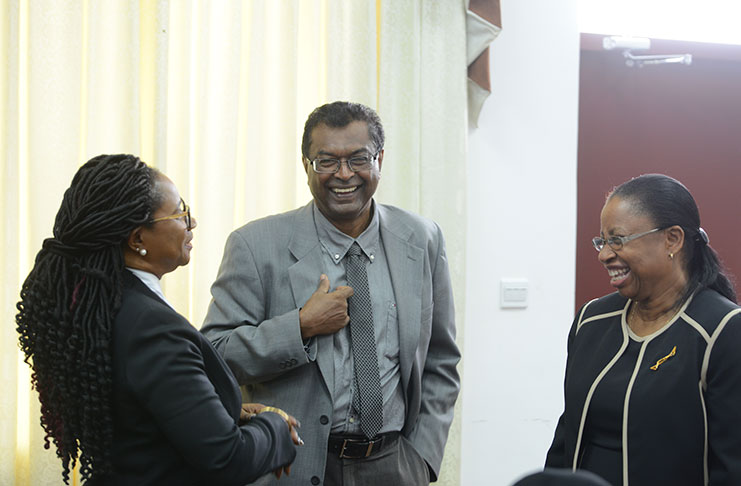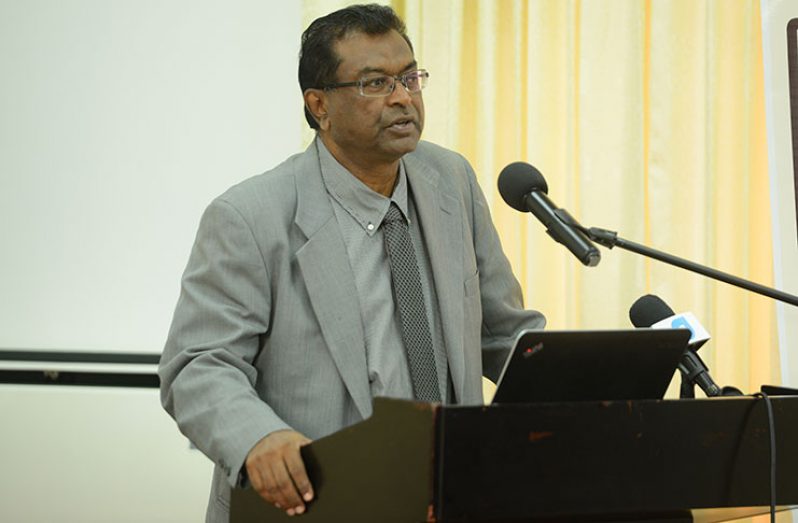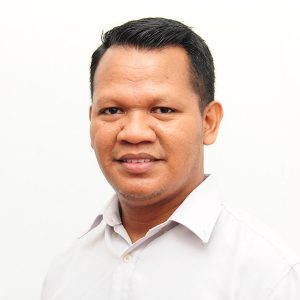— Ramjattan says programme coming on stream for drug offenders
A DRUG treatment programme, which can see repeat offenders such as drug addicts being treated rather than going to jail, is expected to come on stream.
The programme, which would see the establishment of drug treatment courts, was touted at the Arthur Chung Convention Centre (ACCC) at Liliendaal during a training course on Wednesday on treatment alternative to incarceration.
Public Security Minister Khemraj Ramjattan, who is performing the duties of prime minister, said the consent of the magistrate, lawyer/s for an offender and the prosecutor will determine if the defendant would be inducted into the programme.
He told reporters that a magistrate’s court will be used as a pilot and will be extended to other areas across the country. He said in areas where the prevalence of drug abuse is high, a second court could be established.
“We want to make non-custodial penalty for those involved,” he said, adding that persons in question may not necessarily be first-time offenders.
“It a new approach to the criminal justice system,” he said.
During his address to the participants, Ramjattan noted that the jail may not be the best place for treatment for drug addicts.

He said as a prosecutor, defence counsel and now minister, he realised that jail does not necessarily rehabilitate the offender, but rather makes them “graduate into bigger things”. He said they learnt the tricks of trade in prison while serving their three years for narcotics possession and then return to the society.
He said the programme would be a “benefit “for the offender since it would, hopefully, cultivate a better attitude in the offenders. The minister noted that the report on the Camp Street fire in 2016 indicated that the prison is stacked with drug offenders and the overpopulation creates its own disaster that cost much.
Ramjattan said the cost of maintaining prisoners would be impacted by the programme as he noted that the average cost is around $380,000 per person and he posited that the figure may be higher.
COMMUNITY-ORIENTED
Minister Ramjattan also said more community-oriented resources would be required to support the programme.
He said it is important the programme is promoted since it can gain buy-in by all stakeholders.
“For too long we have maintained the tradition that the criminal justice process is simply investigate –prosecute ,” he said, adding that there is now a transformational move ongoing where the juvenile justice regime has changed.
“So we don’t want to necessarily jail our juveniles or make this a jailhouse nation,” he said as he noted that diversionary measures are necessary.
Ramjattan told the gathering that there are many fundamentals which have to be established before the programme can be successful. He said the marriage of treatment services with the court, will give rise to the need for skilled workers such as psychiatrists, who would have to be united with the judicial process.
He said, too, that a new culture has to be established in which the legal system would not be necessarily aggressive to the offender to the extent that he/she would be jailed but where decisions could be reached by consensus.
“We have to also get this fundamental right,” he said.
He said other initiatives such as random testing of persons in the programme will also be a necessity while there would be need for inter-disciplinary training of persons such as the magistrates.
They would have to be familiar with medicine which, he noted, is relevant to the treatment process. Ramjattan also noted that the community’s involvement in the programme would prove vital.
US Charge d’ Affairs , Terry Steers-Gonzalez, told the gathering that he is heartened that Guyana is tackling issues regarding drug abuse, incarceration and related changes in the justice sector. He said that drug abuse is a growing problem for many nations and for Guyana the issue is further complicated since this country is a transhipment point for illegal narcotics.
Steers-Gonzalez said he is pleased that Guyana continues to develop and fine-tune its Drug Strategy Master plan. He also lauded several other initiatives taken by the government in its fight in addressing narcotics-related matters.




.png)









